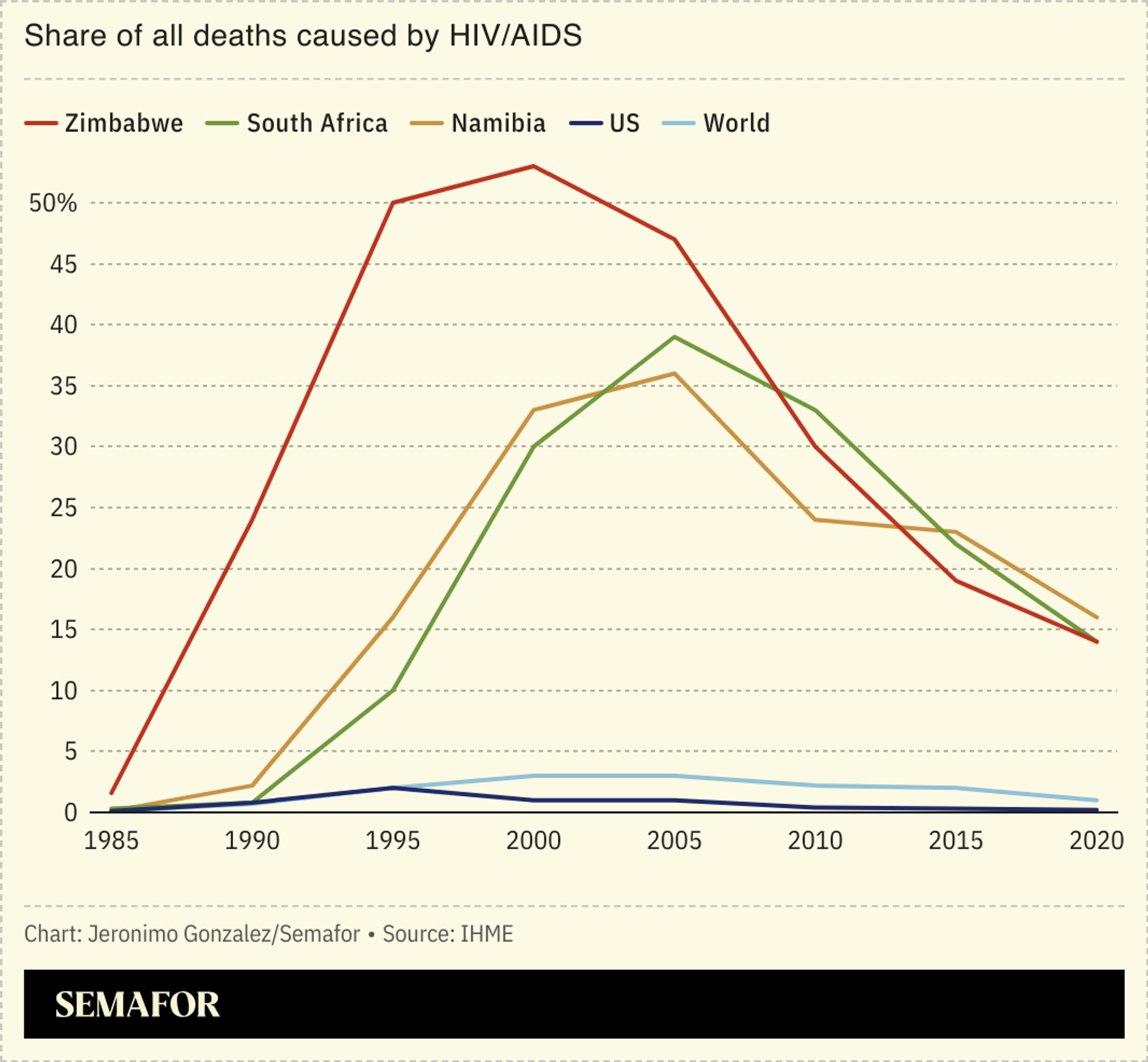The News
US pharmaceutical company Gilead said it would allow drug manufacturers in Asia and Africa to make cheap generic versions of its life-saving HIV medication.
Lenacapavir, a twice-yearly injection, provides near-total protection from the virus, but in the US, it costs $42,250 per patient per year — an unattainable sum for many developing-world health care systems.
The new deal would permit six companies to sell it for much less — perhaps as little as $40 — in 120 poorer nations. In 2023, there were 1.3 million new HIV infections around the world, according to HIV.gov.

SIGNALS
Middle-income countries increasingly bereft of affordable healthcare access
Gilead’s deal will not apply in several middle- and high-income countries that account for around 20% of new annual HIV infections, including Brazil, Mexico, Colombia, and Russia, and they will still only have access to the drug at higher prices. The difference underscores “a widening gulf in health care access that is increasingly isolating the people in the middle,” The New York Times noted. Similar deals have been struck for other groundbreaking drugs to treat hepatitis, COVID-19, and cancer. Yet the people who may be most in need of the drug in middle-income countries are often members of marginalized groups that would most benefit from its wider availability in the public health care system, experts said.
Gilead’s drug could be key to ending HIV globally
Lenacapavir is widely recognized as a groundbreaking drug for the treatment of HIV infections, so much so that “it’s not an exaggeration to say that meeting the 2030 goal of ending new HIV transmissions hinges on Gilead ensuring people in the global south have fair access” to it, a senior officer for a network of young people living with HIV told The Guardian in the months before the generics deal was struck. While lenacapavir is currently only approved for treatment of HIV, recent studies have found the drug to also be highly effective at preventing the spread of the infection, and could be a “game changer,” the nonprofit People’s Medicine Alliance said in a statement.

